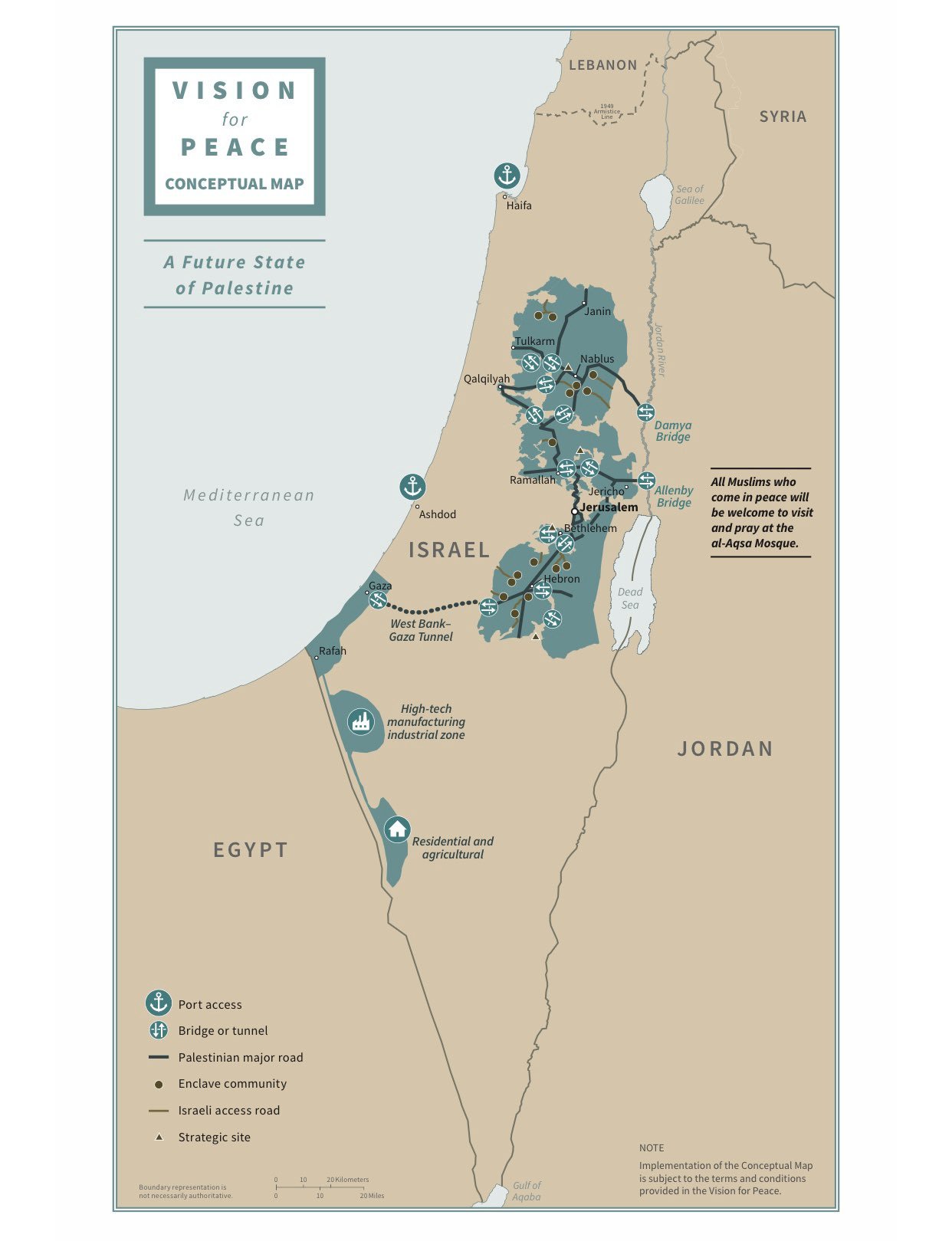Trump's Middle East Trip: Kushner's Influence And Advice

Table of Contents
Kushner's Role in the Abraham Accords
Kushner played a central, and highly visible, role in the Abraham Accords, a series of normalization agreements between Israel and several Arab nations. His involvement significantly shaped the process and its outcomes.
Negotiating Peace Deals
Kushner's involvement in the Abraham Accords was multifaceted. He engaged in intense diplomatic efforts, shuttling between countries and facilitating direct communication between previously hostile parties.
- Specific countries involved: The UAE, Bahrain, Morocco, and Sudan normalized relations with Israel under the Abraham Accords, a landmark achievement.
- Key challenges overcome: Overcoming deep-seated historical mistrust and addressing Palestinian concerns were major hurdles. Kushner's approach focused on economic incentives and mutual security interests to build trust.
- Kushner's negotiating tactics: His approach emphasized direct engagement, bypassing traditional diplomatic channels, sometimes drawing criticism. He prioritized results-oriented negotiations, focusing on tangible agreements.
- Criticisms of the agreements: Critics argued the accords sidelined the Palestinian issue, prioritizing Israeli interests and potentially undermining future peace negotiations. The lack of meaningful Palestinian involvement remained a significant point of contention.
Economic Incentives and Investments
A key element of Kushner's strategy was the economic dimension. He promoted significant investments in the region as a means to solidify the peace agreements and foster long-term stability.
- Specific investment deals: While precise figures remain somewhat opaque, several significant investment deals were announced following the Abraham Accords, particularly in the UAE and Bahrain.
- "Deal of the Century" economic plan: Though ultimately unsuccessful in its entirety, Kushner's "Deal of the Century" economic plan aimed to stimulate massive investment in the Palestinian territories as a component of a broader peace agreement.
- Successes and failures: While the Abraham Accords spurred some economic cooperation, the full economic potential remains largely unrealized, partly due to regional instability and continued political tensions.
- Long-term economic impact: The long-term economic impact of the Abraham Accords and Kushner's related initiatives is still unfolding and subject to various economic and geopolitical factors.
Kushner's Relationship with Key Middle Eastern Leaders
Kushner cultivated relationships with key Middle Eastern leaders, a strategy central to his approach to regional diplomacy.
Building Relationships
Kushner built relationships with powerful figures, including Mohammed bin Salman (MBS) of Saudi Arabia and Benjamin Netanyahu of Israel.
- Nature of relationships: Kushner's relationships were often described as direct and personal, characterized by close engagement and frequent communication.
- Meetings and discussions: He undertook numerous private meetings and discussions with these leaders, prioritizing direct dialogue and building personal rapport.
- Successes and failures in building trust and rapport: While he cultivated certain relationships, building lasting trust across the region proved challenging, especially given existing geopolitical complexities and deep-seated historical animosities.
Criticism of his Approach
Kushner's approach drew considerable criticism. Concerns were raised regarding his relative lack of experience in foreign policy and his tendency to circumvent traditional diplomatic channels.
- Criticisms from experts and politicians: Many experts and politicians criticized his direct engagement, arguing it bypassed established diplomatic processes and risked undermining long-standing relationships.
- Accusations of favoritism or lack of experience: Critics argued his close ties to the Trump administration potentially led to favoritism towards certain countries or interests.
- Impact of his approach on US foreign policy: His approach's impact on US foreign policy is still debated, with some arguing it achieved tangible results while others express concern about its long-term consequences.
The Impact of Kushner's Advice on Trump's Middle East Policy
Kushner's input significantly shaped Trump's Middle East policy, although the extent of his influence remains a matter of ongoing analysis and debate.
Policy Decisions and Outcomes
Kushner's advice demonstrably affected several policy decisions.
- Examples of specific policy decisions influenced by Kushner: The decision to move the US embassy in Israel to Jerusalem and the emphasis on economic incentives in the peace process were significantly shaped by Kushner's perspective.
- Successes and failures of these policies: The embassy move was celebrated by Israel but condemned by Palestinians and many in the international community. The economic incentives, as part of the "Deal of the Century," largely failed to produce the desired results.
- Long-term consequences: The long-term consequences of these decisions remain to be fully assessed, with potential implications for regional stability and US relations with key players in the Middle East.
Long-Term Implications
Kushner's involvement has had lasting implications for the region.
- Changes in US-Israel relationship: The Trump administration, influenced by Kushner, significantly strengthened the US-Israel relationship.
- Altered dynamics in regional alliances: The Abraham Accords reshaped some regional alliances, creating new partnerships while potentially straining others.
- Future implications for the peace process: The long-term impact on the Israeli-Palestinian peace process remains uncertain, with both positive and negative possibilities.
Conclusion
Jared Kushner's influence on President Trump's Middle East policy remains a subject of ongoing debate. His role in brokering the Abraham Accords is undeniable, yet his methods and the long-term implications of his advice continue to be scrutinized. Understanding Kushner's involvement is crucial for comprehending the complexities of US foreign policy in the region. Further research into Kushner's Middle East influence will likely reveal more nuanced perspectives on his impact. For a deeper dive into this critical aspect of the Trump administration, explore further resources on Kushner's Middle East influence.

Featured Posts
-
 Celtics Blowout Win Secures Division Title
May 11, 2025
Celtics Blowout Win Secures Division Title
May 11, 2025 -
 The Best John Wick Film Has The Lowest Rotten Tomatoes Rating A Critical Analysis
May 11, 2025
The Best John Wick Film Has The Lowest Rotten Tomatoes Rating A Critical Analysis
May 11, 2025 -
 The Appeal Of City Name A Comprehensive Guide To A Top Michigan College Town
May 11, 2025
The Appeal Of City Name A Comprehensive Guide To A Top Michigan College Town
May 11, 2025 -
 Semana Santa O Semana De Turismo En Uruguay La Historia Detras Del Nombre
May 11, 2025
Semana Santa O Semana De Turismo En Uruguay La Historia Detras Del Nombre
May 11, 2025 -
 Jessica Simpsons Chic Airport Look Cheetah Print And Blue Fur Coat
May 11, 2025
Jessica Simpsons Chic Airport Look Cheetah Print And Blue Fur Coat
May 11, 2025
